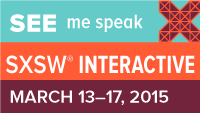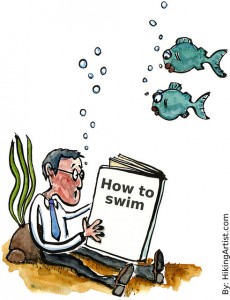 If you are considering tutoring, or thinking about tutoring as an option for you or your child, this question is one of the most common.
If you are considering tutoring, or thinking about tutoring as an option for you or your child, this question is one of the most common.
The most institutionalized and common answer is that you should get a personal one-to-one tutor if you can afford it, but the answer may be more challenging when it comes down to the actual application, quality and diversity of content.
Of course, the traditional education system teaches us in group settings. Throw 30 students and a teacher in the classroom, and you have the most economically scalable and effective way to meet educational needs. But, then, why do so many students fall through the cracks of the system? Why do we have an average of 7,000 dropout high school students a day? Many argue it’s because we teach “to the test,”or that there’s an intersectional bias between race, class, and the level of education you are eligible to receive.
Some would say that, sadly, the results are diminishing: the need for tutors is rising, the racial disparity spanning over an ever increasing educational gap is getting harder and harder to breach, and the system is failing those whom it was meant to benefit most. For this reason, the argument goes, establishing a backup system that picks up the slack for the system itself is the cornerstone to a well-educated society, and making an A on that next math test. But how do you know if group tutoring is the right option for you, and how do you know if individual tutoring is worth the extra money? The answer is in the “Why?”.
If applicable, WHY is the traditional classroom setting not working for you? If you’re looking for a tutor to help you with something you are not taking a class in, this question may not apply to you. (For instance: if you are a middle aged individual looking for guitar lessons, or you need training on how to file your taxes.) However, if you are a student in search of a tutor for a class you are currently enrolled in (or will be enrolled in), it’s a good idea to figure out why your particular classroom setting is not working.
If it’s because there are too many students and you can’t get your questions answered or your instructor is too overwhelmed to offer individual attention, group lessons might give you the opportunity to learn the material and ask the questions you need without an exorbitant price tag. In that situation, perhaps personal instruction is overkill.
On the other hand, if you are falling significantly behind in course material, have a learning style that is not common, have physical or mental considerations that affect your learning, need to learn hands-on subjects, or are searching for a tutor for a specific skill that you have absolutely no base knowledge of, individual tutoring may be more appropriate, and may even be required.
Have you tried either option before? Do you have any recommendations? If you have tried either option before and know that said option works for you, stick with it. As they say, if it ain’t broke, don’t fix it. If you know anyone who has gotten a tutor in the subject area you are searching for, ask them for their preference. Word of mouth can be the most reliable tool, especially if that person can recommend a tutor in your needed niche or if they have a similar learning style. Because of the professional as well as the human side of one-to-one learning, finding an individual mentor or tutor who is the right fit is a numbers game, so internet marketplaces (like LRNGO and others) can improve your chances.
I can’t stress this enough, consider how you learn. I know I’ve already mentioned this twice, but figuring out how you learn and what is and isn’t working is the key. Make sure you communicate your style of learning to your tutor so he/she can tailor their lessons and teaching style. In addition, if there’s a textbook or a curriculum on the subject that fits your goals, outlining these pages and adding online quizzes to test your knowledge and development at certain stages can also be helpful.
Ultimately, deciding if a tutor or a small group class is right for you can be a difficult decision. The traditional education model does not always work for everyone, and having a tutor is in no way a sign of weakness, but instead can be the quickest way to build confidence. The next step is deciding if group tutoring or one to one mentorship is necessary. Ask around, think about what’s working for you and what isn’t, and decide which method will better pander to your way of learning.
At the end of the day, learning how you learn best is often the key to making that A.
Emma Wu is an undergraduate student at Bryn Mawr College pursuing her side passion of oppression theory and educational reformation. She worked as a volunteer art teacher for two years at an underprivileged elementary school in Philadelphia, and serves as a co-teacher for Advancement of Mexican Americans programs across the city of Houston.



